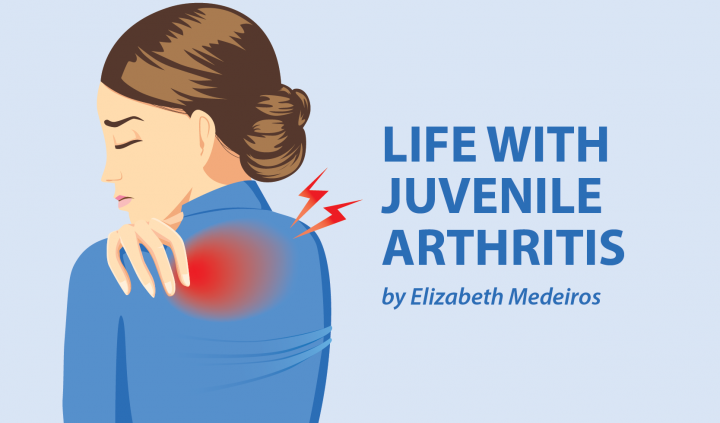As a child, I was quick as a whip. While schoolwork didn’t come naturally to me, I loved to learn and worked hard. I graduated with many academic awards and honors. Little did anyone know, however, there were days I struggled to spell simple words or do basic math. Even though my teachers were aware of my juvenile arthritis (JA), they had no idea about the brain fog that went with it.
One neglected symptom some youngsters with JA experience is cognitive dysfunction. Often referred to as “brain fog” or “pain brain,” it can make critical thinking or recalling things difficult. It’s common among people who have inflammatory arthritis. Growing up, I always talked with my peers who had JA about the impact pain brain can have on our lives. While the exact cause of the condition is unknown, it’s likely due to a mix of inflammation, fatigue, disturbed sleep, and pain. Many people notice it eases during good periods and worsens during flares.
Finding a way to cope
Coping with brain fog can be difficult for both children and adults. While it’s hard to deal with being unable to solve problems or remember anything, I think it’s even harder to deal with the feeling of letting yourself down. It’s easy to feel like you keep messing up because you’re not that smart.
But a few weeks ago, as I watched the movie “Finding Dory,” something clicked. I lost it briefly, but then it came back. Dory is a character who lives with short-term memory loss. While her forgetfulness is emphasized, I realized she is so much more than that. We can learn a lot from her. For that reason, she’s the perfect character to help encourage children with JA not to fret over brain fog. Even older kids and teens may see her as their “spirit animal.”
Dory has short-term memory loss
First and foremost, her forgetfulness is not who she is, it’s part of a disease that she has. Yes, she sometimes forgets Nemo’s name or where she’s going, but she is not forgetful on purpose, and it’s not fair to get upset at her. While brain fog is frustrating, it’s important not to get too upset with your child. When their arthritis is flaring, try to be patient if they’re forgetful: they may be having a hard time coping.
Brain fog doesn’t affect your intelligence
I think the most important thing to keep in mind is that short-term memory loss does not make Dory stupid! She can speak a second language (whale) and she can read English. Like Dory, your child is intelligent. Pain brain just makes them a little more forgetful or causes them to need extra time for schoolwork. Taking some breaks to rest during homework, chores, and other tasks is a great way to “just keep swimming” without feeling overwhelmed. It’s also a good idea to allow your child to distract themselves with activities they enjoy.
Dory is a wonderful character
There is so much more to Dory than her poor memory. She is very funny, playful, and happy. She is a lovable character because she cares so much for the other fish in her life. When brain fog strikes, it’s so easy to feel down on yourself. But parents, remind your child there is so much more to them. Your child has so many wonderful traits; there is no need to focus on some fogginess that sets in when they don’t feel well.
It’s not always funny
At the end of the day, brain fog can have a big impact on your child’s life. One or two simple mistakes are forgivable, but it’s so frustrating to repeatedly forget things or make mistakes. It’s easier to laugh at the silly mistakes on some days than on others. There were lots of times Dory was upset with herself, too. Try to be sensitive with your child, especially if they seem upset, but above all, try to keep your calm. When you’re going through a foggy spell, it’s so comforting to have someone there who will smile and gently say, “It’s OK.”
***
Note: Juvenile Arthritis News is strictly a news and information website about the disease. It does not provide medical advice, diagnosis, or treatment. This content is not intended to be a substitute for professional medical advice, diagnosis, or treatment. Always seek the advice of your physician or other qualified health provider with any questions you may have regarding a medical condition. Never disregard professional medical advice or delay in seeking it because of something you have read on this website. The opinions expressed in this column are not those of Juvenile Arthritis News, or its parent company, BioNews Services, and are intended to spark discussion about issues pertaining to juvenile arthritis.

